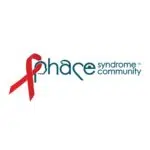International PHACE Syndrome Awareness Week is held annually in the last week of March. This year, it takes place from March 22 to 28. It aims to raise awareness about PHACE syndrome and help families affected by the disease receive appropriate and complete medical care.
The holiday is for people who have encountered PHACE syndrome and those who want to participate in helping people struggling through it.
History of International Phace Syndrome Awareness Week
PHACE syndrome is a rare disease that affects several body systems. It is distinguished by several abnormalities that co-occur with a higher than expected frequency. PHACE is an acronym for posterior fossa anomalies, hemangioma, arterial anomalies, cardiac anomalies, and eye anomalies. It comes from the initials of the disorder’s most common signs and symptoms.
The disease is much more common in girls than in boys. However, specific symptoms and their severity can vary significantly from person to person. Most affected children will not exhibit all the major symptoms associated with the disorder. Some children may experience mild problems associated with the disease, while others may develop serious complications that affect their quality of life. The main symptoms of PHACE are anomalies of the aortic arch; narrowing, abnormal growth, or absence of a major cerebral artery; the presence of the trigeminal artery; abnormalities of the cerebellum; blood clots in the blood vessels around the heart and brain; abnormal structure of the back of the eye and sternum; gaps in the wall between the left and right ventricles of the heart; and anomalies in the pituitary and thyroid glands.
The most conspicuous sign of PHACE syndrome is often a hemangioma, an overgrowth of blood vessels that may look like a red, purple, or blue mole. Hemangiomas often appear on the face, head, or neck. They may be small or barely noticeable at birth and become apparent and grow, sometimes rapidly, within weeks or months of life. The exact cause of PHACE syndrome is currently unknown. International PHACE Syndrome Awareness Week was established by the PHACE Syndrome Community and The PHACES Foundation of Canada to create awareness about the syndrome and help families affected by the disease receive appropriate medical care.
International Phace Syndrome Awareness Week timeline
PHACE syndrome is first mentioned in medical literature.
Medical professionals publish the criteria for PHACE syndrome.
Professionals establish the PHACE Syndrome Community (P.S.C.).
The Food and Drug Administration (F.D.A.) approves propranolol for treating hemangiomas in infants.
International Phace Syndrome Awareness Week FAQs
How common is PHACE syndrome?
It is relatively uncommon.
How is PHACE syndrome diagnosed?
It can be diagnosed through ultrasounds, electrocardiograms, eye exams, hearing tests, and magnetic resonance imaging (M.R.I.).
How serious is a hemangioma?
It can be dangerous if it’s large or affects the baby’s airways or other organs. A hemangioma can also be life-threatening if it leads to uncontrolled bleeding.
How to Observe International Phace Syndrome Awareness Week
Listen to webinars
You can listen to a webinar about PHACE syndrome during International PHACE Syndrome Awareness Week. It is an excellent opportunity for those who like to engage in self-education at home over a cup of hot coffee or fragrant tea.
Research the syndrome
If you don’t know much about PHACE syndrome, research the disease during International PHACE Syndrome Awareness Week. You could start by reading articles about the condition.
Watch videos
There are many videos about PHACE syndrome on YouTube. You could view several of these during International PHACE Syndrome Awareness Week to broaden your understanding of the disease.
5 Interesting Facts About Infants
Sometimes, they stop breathing
When infants sleep, they may periodically stop breathing for five to 10 seconds.
They can’t taste salty things
Newborns may be able to taste sweet, bitter, and sour food; however, they can’t taste salty food for up to about five months.
They cry without tears
Newborns start crying at about two to three weeks, but tears only appear within a month.
They like to look to the right
Most infants like to look towards their right; their behavior is genetic.
They can scare themselves
It doesn't take much to scare a newborn — loud noises, strong smells, and bright lights can scare them.
Why International Phace Syndrome Awareness Week is Important
It has a noble goal
International PHACE Syndrome Awareness Week aims to raise awareness about the syndrome. Understanding what PHACE syndrome is is crucial for the continued health of sufferers.
It encourages donations
The week-long holiday encourages people to make donations. These donations help families struggling with PHACE get the medical care they require.
It prompts further research
With the help of donations, organizations can further research the syndrome’s cause and its cure. They can also make treatment easier to access over time.
International Phace Syndrome Awareness Week dates
| Year | Date | Day |
|---|---|---|
| 2024 | March 24–30 | Sunday–Saturday |
| 2025 | March 23–29 | Sunday–Saturday |
| 2026 | March 22–28 | Sunday–Saturday |

















